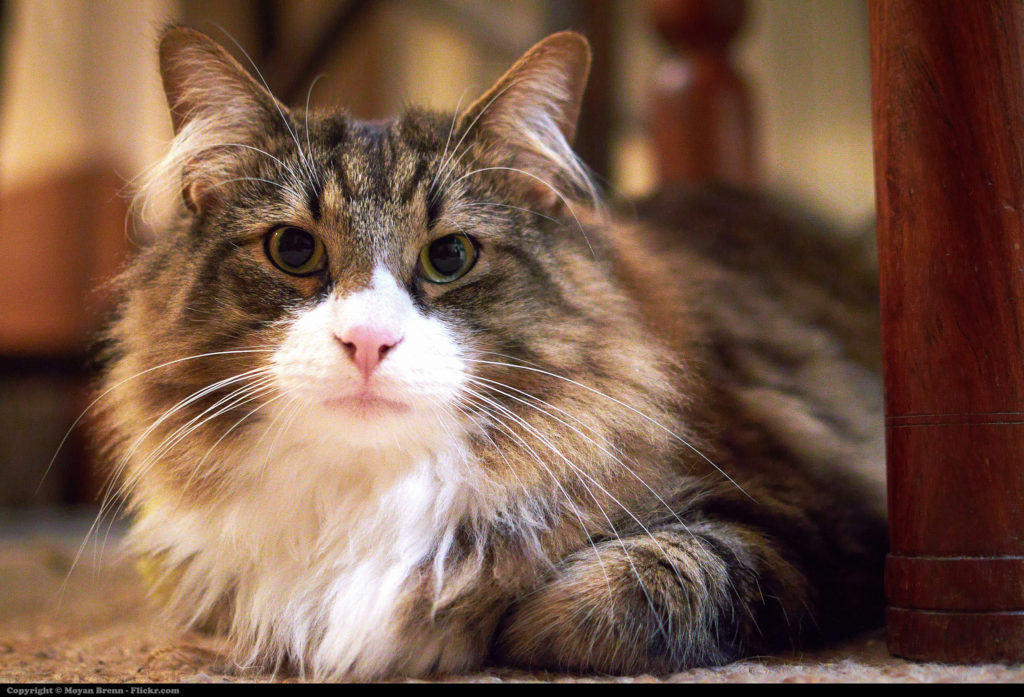
Anyone with a fur baby knows how quickly they become part of the family. Shopping for cat gifts at Christmas, looking for the perfect sleep cave, and finding new and exciting toys for them to be entertained in our absence all become an extraordinarily important part of our lives.
Caring for your cat’s needs can become more complicated if they have a health condition such as diabetes, kidney disease, or seizures.
Watch For
If your cat is a loner, an initial seizure may go unnoticed. The first sign that a cat is experiencing a seizure occurs when a cat collapses to the ground. Their body will typically go stiff and then convulsions will begin. To observers this may look like the cat is twitching, opening and closing his mouth, or moving his feet. It is somewhat similar to how many dogs look when experiencing an exceptionally active dream, but more pronounced. In some instances, the cat will empty his bladder and bowels during a seizure. These events typically only last a couple of minutes.
If the seizure activity becomes an ongoing event it may be possible to detect behavioral changes just before a seizure. These may include vomiting, circling, yowling, or pacing. After the seizure cats typically appear disoriented, lacking in coordination, show signs of temporary paralysis in one of their legs, vomit, or appear to have difficulty seeing. These symptoms usually only last a few hours but it may take days for your cat to return to normal.
More: Cats mysterious power over humanity
Possible Causes
Most of the causes of seizures in cats are unknown, these are described as idiopathic epilepsy. It is possible that there is a genetic component or previously undocumented brain trauma that contributes to these cases.
However, there are numerous conditions that can lead to seizure activity in cats. Some of these involve infection in the brain. Infections from feline infectious peritonitis and fungus Cryptococcus can both cause seizure activity. Strokes, brain tumors, and brain lesions can also cause seizures.
Not all seizure activity is caused by something directly effecting the brain. It is also possible for kidney disease to lead to hypertension which may then trigger a cat seizure. If the liver begins to ineffectively filter out harmful compounds it can lead to increased levels of toxins which may cause seizure activities.
Environmental exposure to toxins is another serious risk associated with seizure activities. Cats may be attracted to the taste of antifreeze, which is extremely harmful if ingested and may lead to seizures and a number of other health conditions. Cats who have flea and tick medication meant for dogs applied to them may suffer from seizures. Something to keep in mind for blended pet homes. Finally, cats who eat medication intended for their human family can find themselves in the veterinarian’s ICU with seizures and other health problems.
Out of all the possible causes for seizures, the environmental exposures to toxins is the one over which human families have the most control. It is important to ensure your feline family member is kept safe from those things which could harm their health using many of the precautions one would use to protect a curious toddler.
Take Action
Watching your beloved cat experience a seizure can be terrifying. However, it is important to remain calm in order to care for you cat and get them the help they need.
First, remember your pet is not in control of their movements and they may accidentally claw or bite during a seizure event. Using a towel, move them away from anything which may cause them harm such as stairs, furniture, other animals, or small children. If they are not in immediate danger, leave them alone until they recover.
Be aware that when the seizure is over they may be disoriented and not recognize their family at first. This can cause some cats to become combative or to run away in fear.
If the seizure lasts for more than a couple of minutes, use a thick towel to pick them up and transport them to a veterinarian as quickly as possible. If the seizure ends in the expected time frame, call the veterinarian and make an appointment.
When your cat has a serious health condition, it is best to consult a veterinarian to find out about all available treatments. Their recommendations combined with your personal research into alternative and holistic remedies will give your cat the best chance of thriving and enjoying a full life despite medical concerns.
You might also enjoy: 7 signs he might be a player